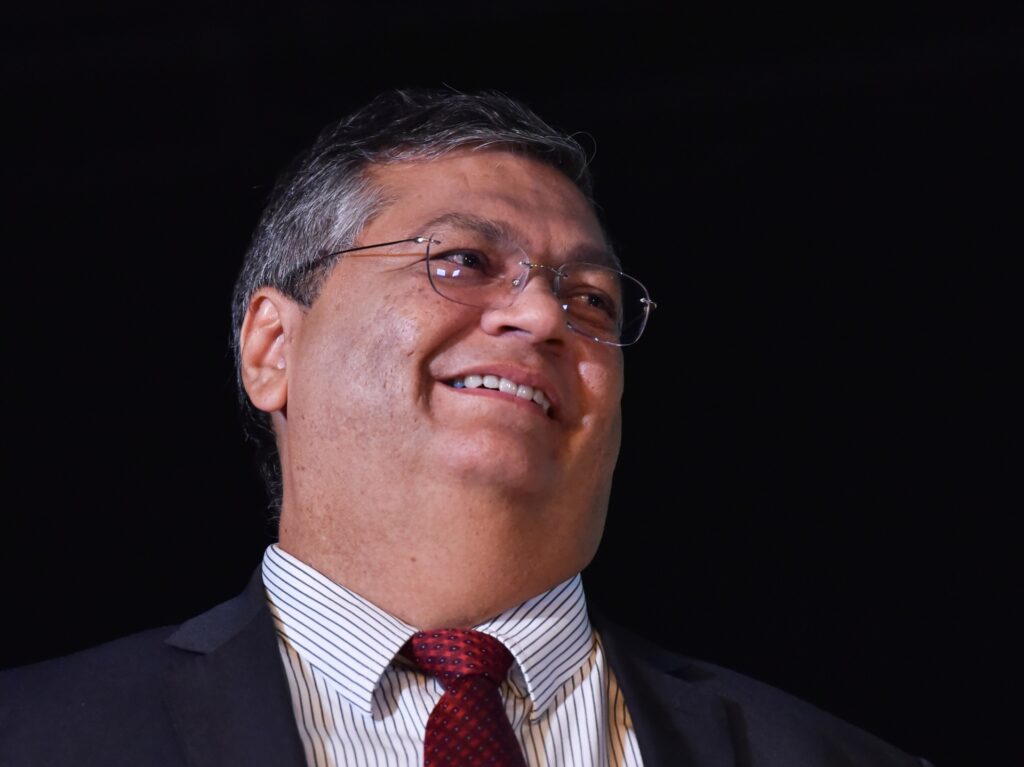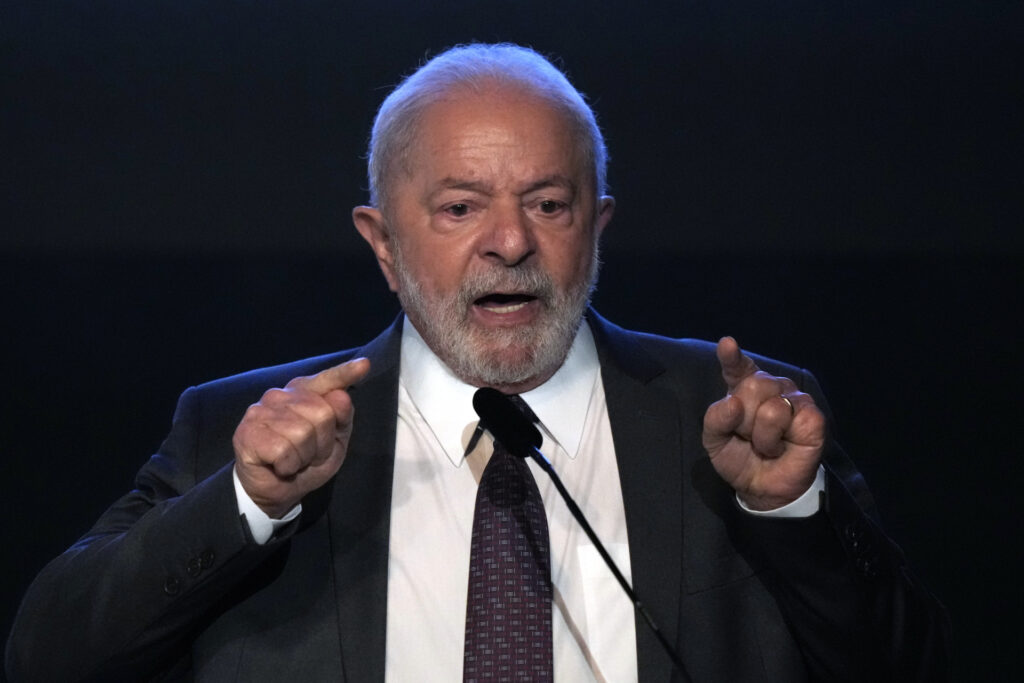Brazil’s Minister of Justice and Public Security Flavio Dino defended on Monday the need to regulate social media in Brazil to prevent “hate speech” on the internet.
Dino made his remarks during a seminar titled “Freedom of Expression, Social Networks, and Democracy” organized by the Getúlio Vargas Foundation (FGV), the Brazilian television channel TV Globo, and the Brazilian Institute of Education (IDP).
During the event, the justice minister announced that the Brazilian executive government is preparing a draft bill aiming to regulate social media. The proposal will be presented to Brazil’s radical leftist President Luiz Inácio Lula da Silva next week and, if approved by Lula, it will be then delivered to the National Congress for its subsequent debate and discussion.
Brazilian law states that a bill may be submitted to the nation’s congress by any deputy or senator, or by any committee of the House and Senate. It also allows a bill to be presented to the Brazilian Congress by either the president of the republic, the attorney general, the federal supreme court, higher courts, or by the nation’s citizens. Separation of powers protections do not prevent the president from introducing legislation.
“We are concluding the debate between the Ministry of Justice and Secom [Brazil’s Social Communication Secretariat], and this project already has the general lines defined,” Dino said. “There is unity in the government team and, next week, it will be delivered to President Lula so that, if he approves it, it will be forwarded to the House of Representatives.”
The text of the bill, Dino asserted, is based on a study ordered by Alexandre de Moraes, the head of the nation’s Supreme Federal Tribunal (STF). De Moraes was also a participant in the Monday seminar. Dino explained that the bill will have as its main premise the “accountability” of large digital platforms, with the use of “transparency and auditing” to identify the circulation of so-called “fake news.”
“It doesn’t mean that the project that will be debated is purely of a punitive nature, but obviously it will have a dimension about accountability,” Dino explained.
According to Dino, the proposed law will be based on the European model and is focused on the platforms’ duty of care. The minister continued by stating that the creation of a regulatory body to oversee social media in Brazil is still under debate while pointing out that the proposed body should “have certain attributes of independence” besides involving civil society and checking companies, but it cannot be a “new heavy, bureaucratic, unwieldy apparatus.”
“The idea is a project that protects freedoms and ensures that the Internet is not a war,” Dino said, “So that there is duty of care on the part of companies and responsibility in the case of committing crimes where these platforms have been used.”
The prospective law that aims to regulate social media is one of the four pieces of legislation in a so-called “Democracy Package” originally proposed in January as a response to the events of the January 8 riot in Brasilia, when thousands of protesters stormed the premises of the nation’s congress, Supreme Federal Tribunal (STF), and the Planalto presidential palace. The protests, while destroying significant historical property, resulted in no deaths and minimal injuries.

Justice and Public Security Ministry nominee Flavio Dino attends a press conference where Brazilian President-elect Luiz Inacio Lula da Silva announced some of his cabinet appointments at his transition team’s headquarters in Brasilia, Brazil, Friday, Dec. 9, 2022. (AP Photo/Ton Molina)
During his remarks at the seminar, Alexandre de Moraes asserted that the “extreme right” is using social media to manipulate information and “instrumentalize” its users.
“A very radical far right realized, in an extremely competent way, that it was possible to manipulate information and, especially, the internal hatreds, revolts, and traumas of various segments of society,” de Moraes claimed, “to bring these people together socially and, from this, to instrumentalize them.”
De Moraes also condemned right-wing groups for allegedly using social media algorithms to gather people with common interests, including, according to him, “antidemocratic” interests.
“The social networks and the big techs were instrumentalized on January 8. The whole organization of the eighth was made by the social networks, they didn’t even disguise it,” he continued.
Throughout his speech, de Moraes reiterated his calls for censoring social media.
“It is not possible for us to treat social networks and platforms as a no man’s land,” he asserted. “It is not possible for us to think that it is a metaverse, that you can enter and practice everything you do in real life. You can’t.”
The STF minister stated that he had been in talks with social media companies and had proposed to them to “self-regulate,” suggesting they use the same control models employed to combat child pornography and pedophilia to restrict what he called is “anti-democratic” and “hate speech.”
De Moraes, a self-styled “anti-fake news” crusader, is known for having ordered police raids against comedians, content creators, and Brazilian citizens supportive of former President Jair Bolsonaro in the past, accusing them of allegedly spreading “fake news.”
In 2021, De Moraes ordered the arrest of conservative Brazilian lawmaker Daniel Silveira for having published a video on YouTube critical of the STF and its justices. The profanity-laced video was deemed by de Moraes a “flagrant crime” and he accused the lawmaker of “incitement of the population to the subversion of the political and social order.”
Silveira was released in November 2021 under the condition that he was not allowed to communicate through any social media, had to abstain from interacting with anyone under investigation for crimes of “political dissent,” and submit to severe travel restrictions.
In March 2022, the lawmaker, in defiance of the STF’s ruling that he wear an ankle monitor barricaded himself in his office, daring Brazilian police officers to violate his immunity.
In April, de Moraes sentenced Silveira to eight years and nine months in prison, stripping him of his parliamentary seat, and imposing a fine of about $45,000. Hours after the sentence, former President Jair Bolsonaro issued a presidential pardon. Silveira completed the remainder of his parliamentary term, which ended in February, having failed to be reelected in the 2022 general election.
During Brazil’s 2022 presidential campaign, de Moraes — who, in addition to leading the nation’s top court, is also the head of Brazil’s election oversight body, the Superior Electoral Tribunal (TSE) — ordered the widespread censorship of campaign materials that referred to the socialist President Luiz Inácio Lula da Silva as “corrupt” or “a thief.” In reality, Lula da Silva had been sentenced to serve 25 years in prison after being found guilty of taking bribes while president. The STF overturned the conviction in 2021, which allowed Lula to run for president a third time.

Brazil’s President Luiz Inacio Lula da Silva speaks during the swearing-in ceremony of Tarciana Medeiros, the first woman to preside the Banco do Brasil, one of the country’s main public banks, in Brasilia, Brazil, Jan. 16, 2023. (AP Photo/Eraldo Peres, File)
In some of his rulings, de Moraes ordered social media companies to block access to groups of accounts and provide the STF with the affected accounts’ full registration data, giving the companies a strict two-hour deadline to comply, lest they be subject to a daily fine.
Arthur Lira, the President of the Brazilian Chamber of Deputies — who also participated in the seminar — criticized the arrests of journalists and parliamentarians who disseminated fake news. Lira also asserted that “freedom of speech and democracy are issues dear to Brazil,” and that the “moment one of the two ceased to exist the other was not in force,” pointing out that both “have always been sides of the same coin.”
“Social networks are instruments of democracy because Brazilians started to show their opinions there,” Lira explained. “It expanded the debate of democracy. But they can represent obstacles, the digital world being the new Greek agora or Roman forum. It is not necessary to arrest someone to silence them, including journalists and parliamentarians who can be silenced at a mere click.”
The Brazilian lawmaker concluded his presentation by arguing that a balance must be struck to preserve both the right to freedom of speech and democracy.
“We can’t give up one of them [freedom and democracy] under penalty of losing the other and, with that, plunge into the unpredictable whirlpool of social instability,” he concluded.
Christian K. Caruzo is a Venezuelan writer and documents life under socialism. You can follow him on Twitter here.

COMMENTS
Please let us know if you're having issues with commenting.